Photos: The Amazing Mummies of Peru and Egypt
Jaguar jar
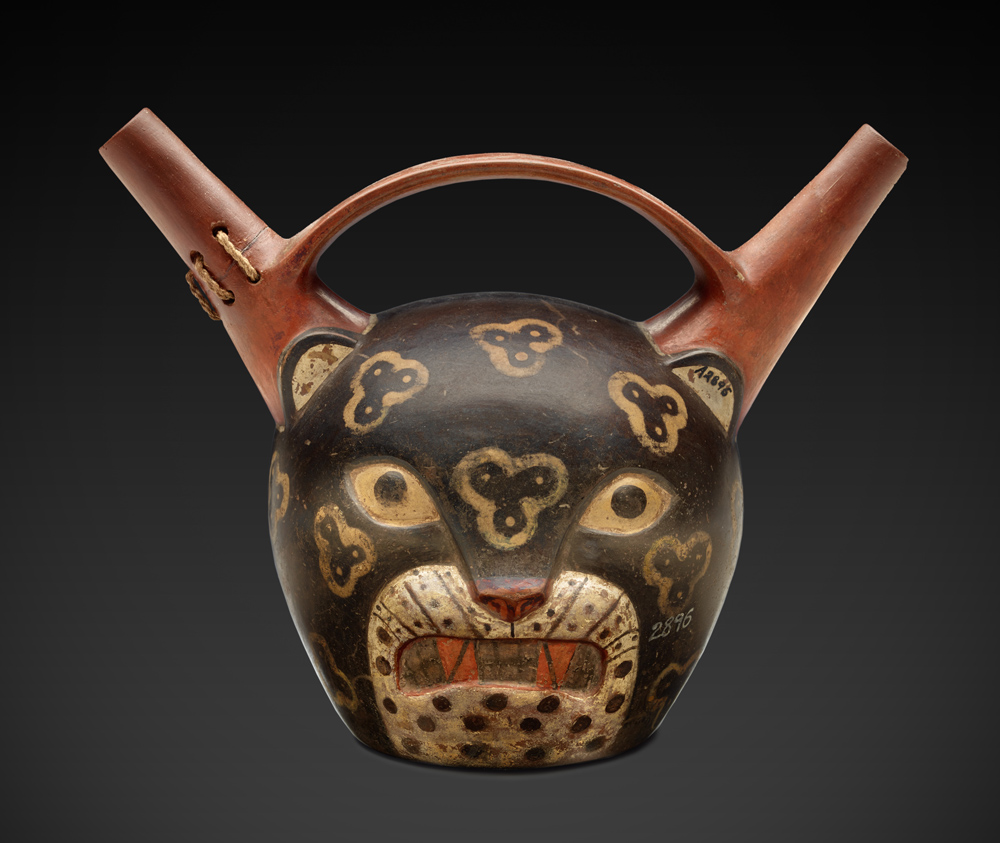
Detailed ceramic pots and jars are often found with mummies. The Paracas culture offered objects like this double-spouted jar that bears the face of a jaguar.
Tradition-related details
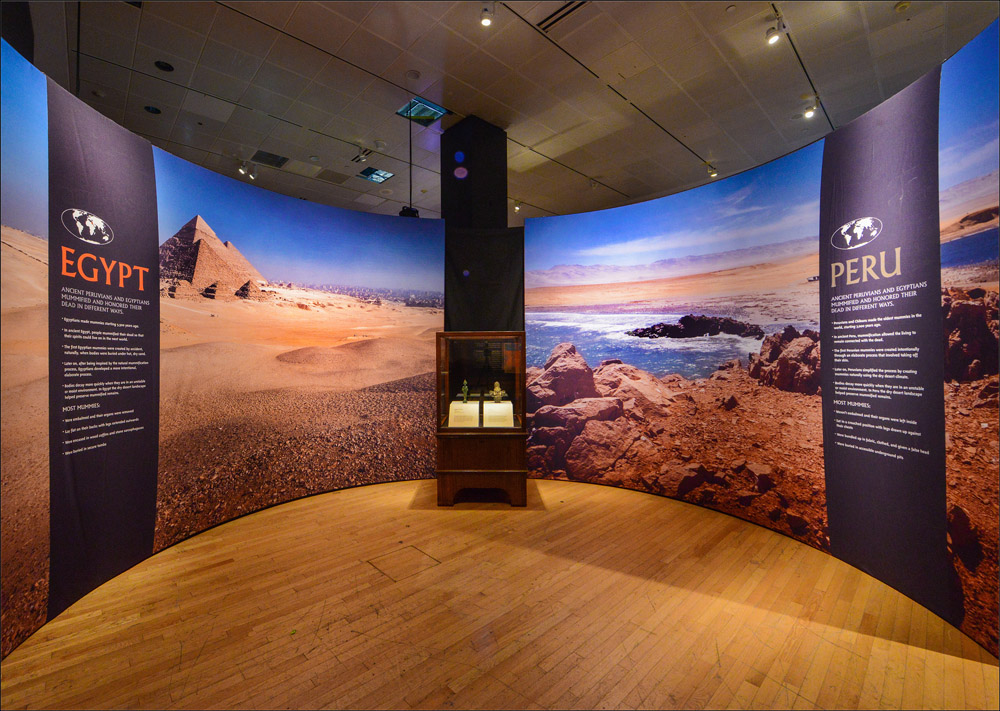
Egypt and parts of Peru may have similarly dry desert climates, but mummification in the regions is notably different. The differences are likely connected to the beliefs about the practice. "Mummies" explores the similarities as well as the differences between the cultures, societies, environments and burial traditions.
Canopic jars
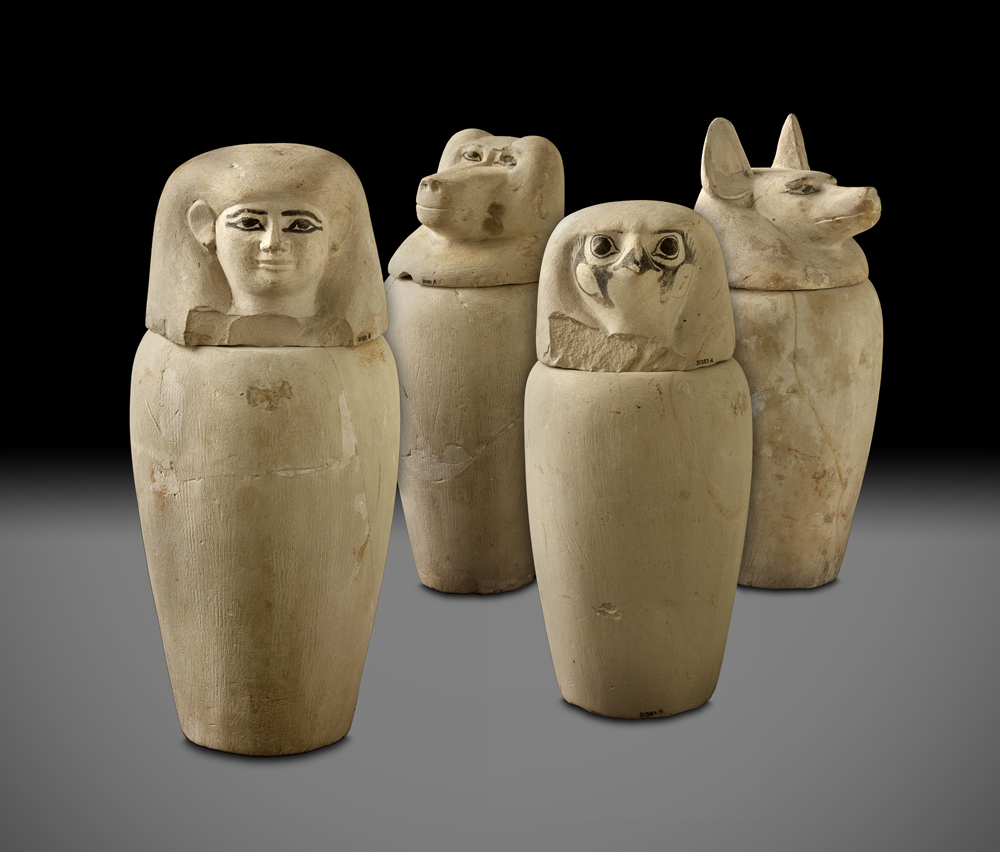
These limestone jars carved with representations of the four sons of Horus were designed to hold the organs of the dead. The symbols of the four deities were carved upon removable lids and were placed to protect the organs and serve the dead through the afterlife.
In touch with history
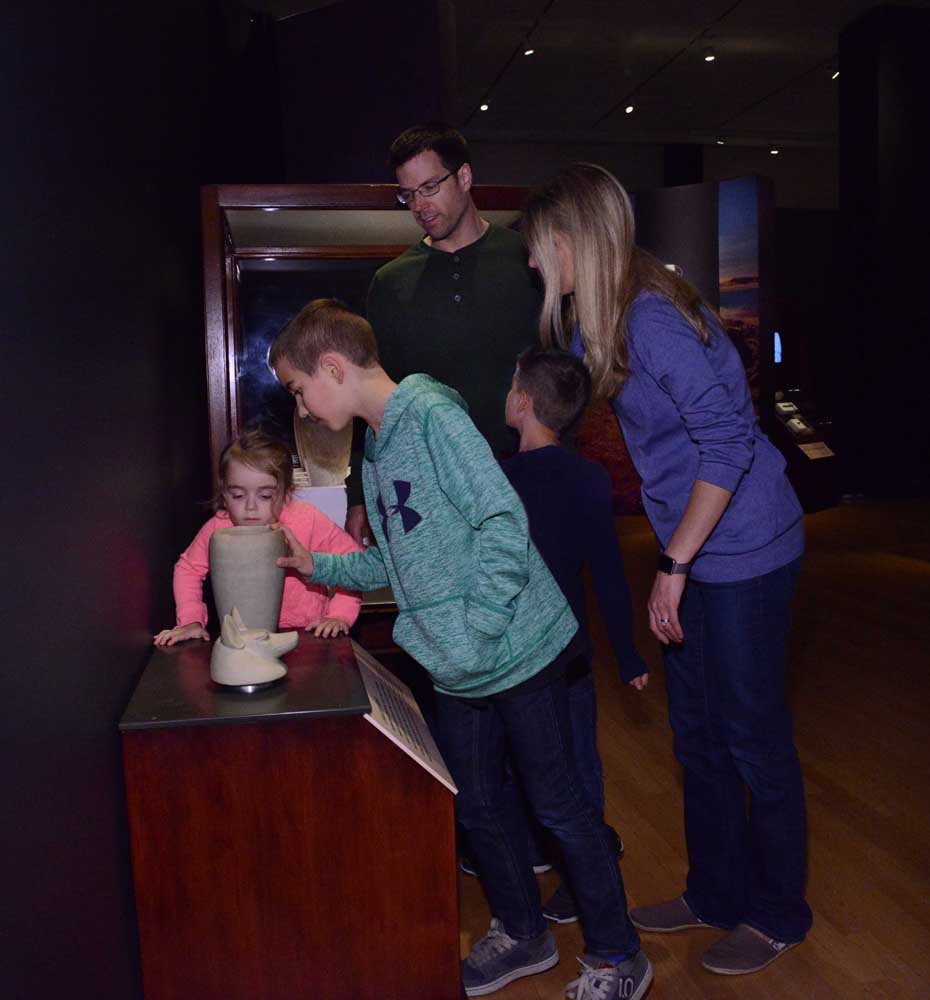
Another touch-screen station allows guests to handle a canopic jar model. This specimen would have held a mummy's stomach.
Animal offerings
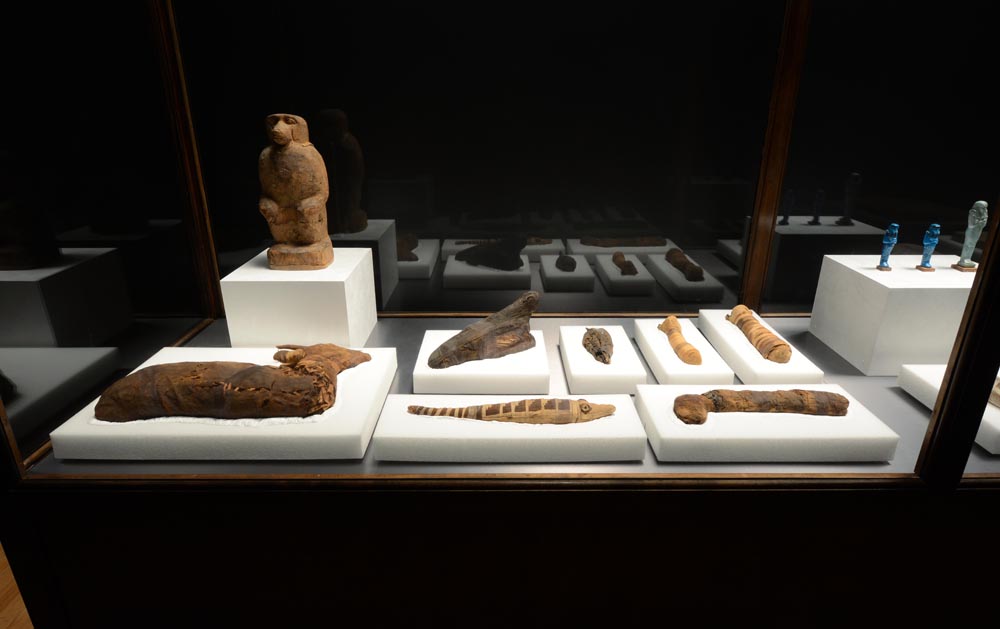
Millions of animal mummies have been discovered in cemeteries. Archaeologists explain that these were not pets, but rather offerings to Egyptian gods who were associated with specific animals.
Shawabti
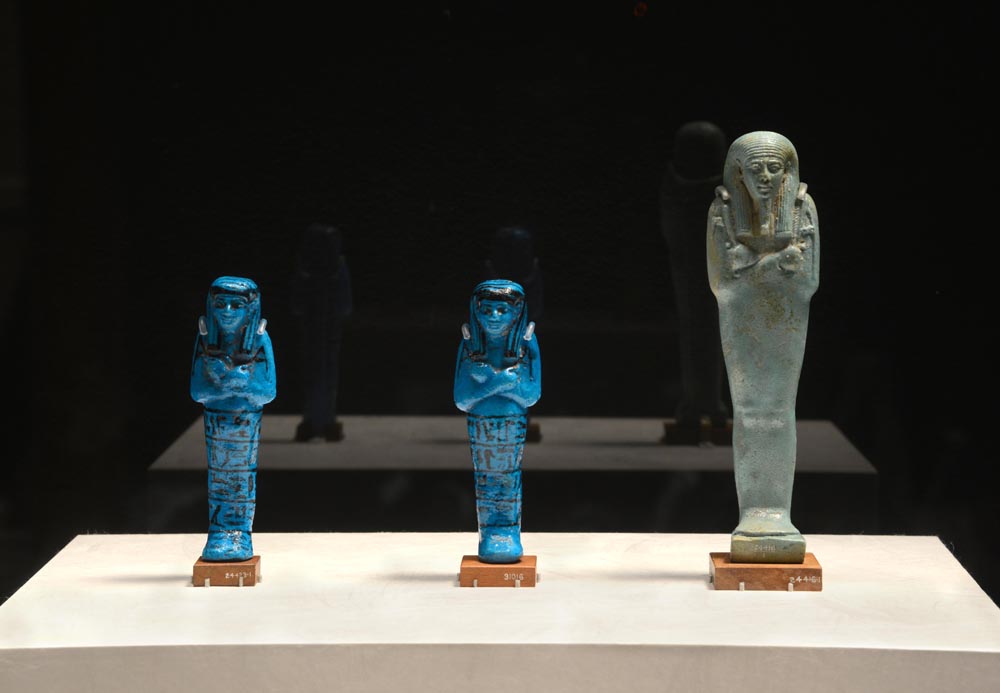
Items buried with mummies in Egyptian tombs provided for the dead in the afterlife. Wealthy Egyptians were buried with servants represented by figurines called shawabti. Preferably a year's worth of servants along with 36 overseers, one for each Egyptian week, were supplied as well.
Unique offerings
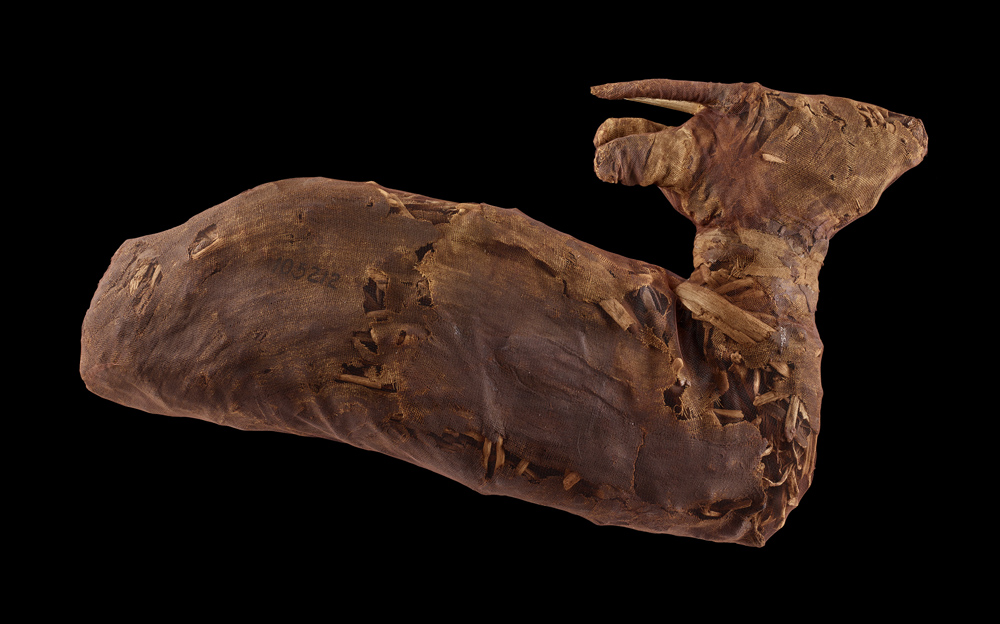
Likely, this gazelle was raised at a temple specifically to be mummified for a burial offering.
Get the world’s most fascinating discoveries delivered straight to your inbox.
Distinct gifts
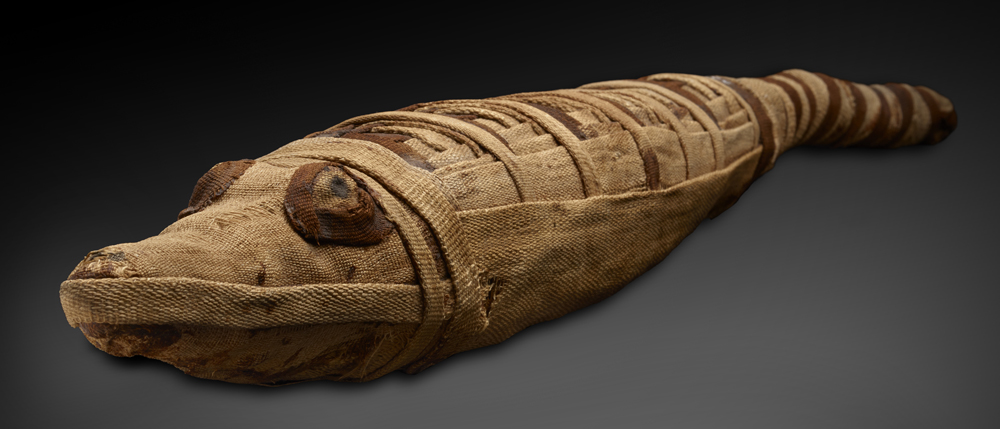
A baby crocodile was intricately wrapped and buried as an offering in an Egyptian tomb.
Remembering their past
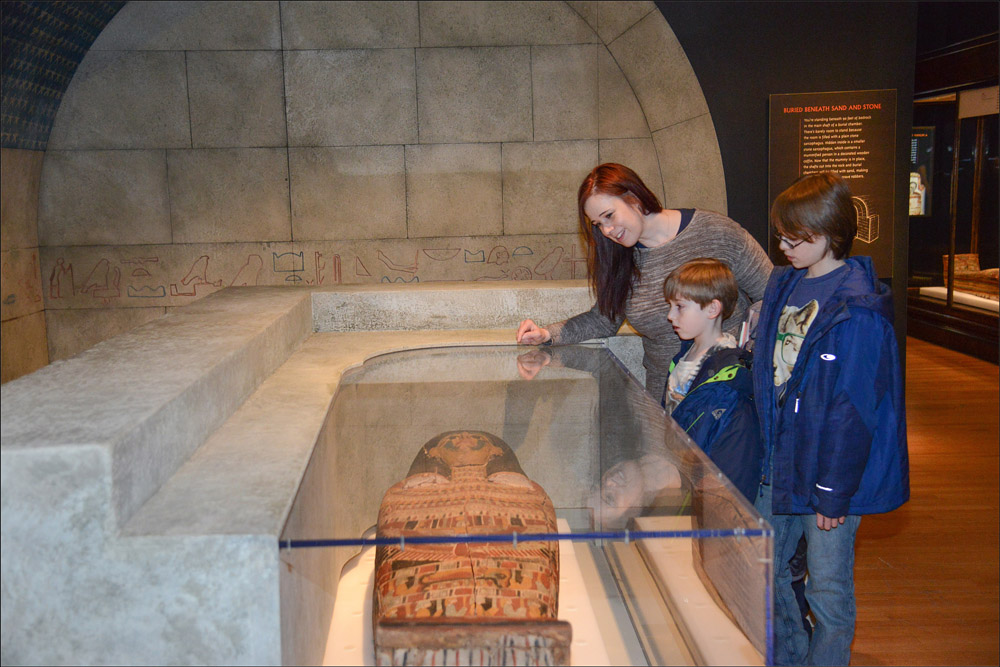
At the "Mummies" exhibition, guests can tour a life-size burial from 26th-Dynasty Egypt. This represents a time when Egyptians explored their own past, reviving early traditions of art, architecture and tomb design.
Decorative coffins
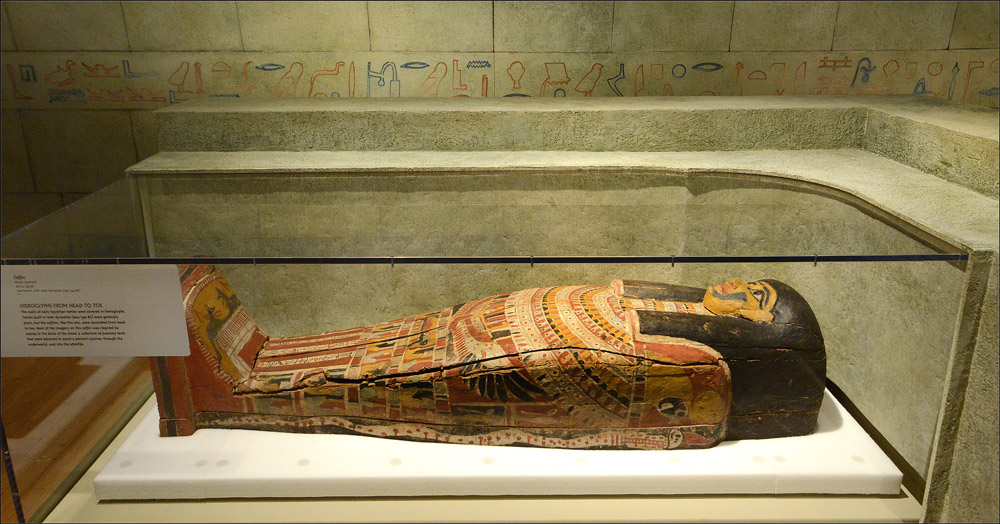
Coffins from the 26th Dynasty era tended to have much more decoration, hearkening back to previous times. The hieroglyphs on this coffin were inspired by "The Book of the Dead," a series of texts believed to help a person traverse the underworld and find the afterlife.


